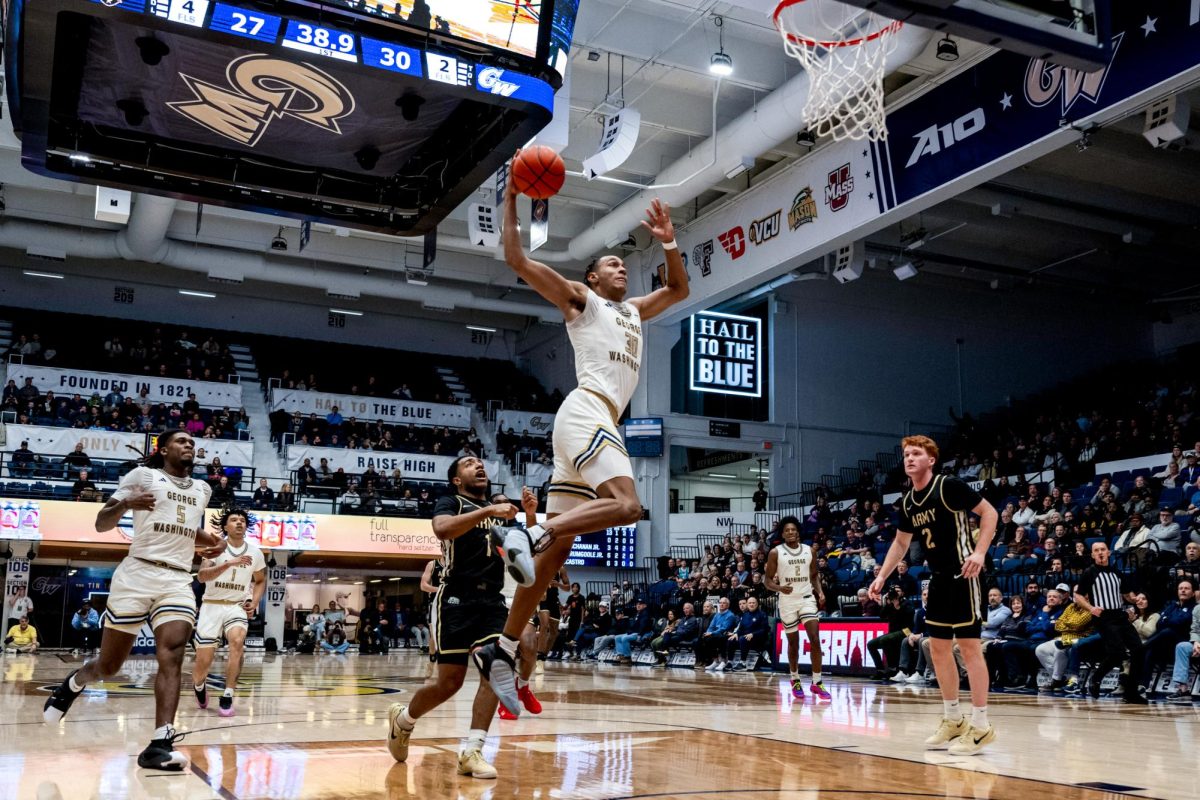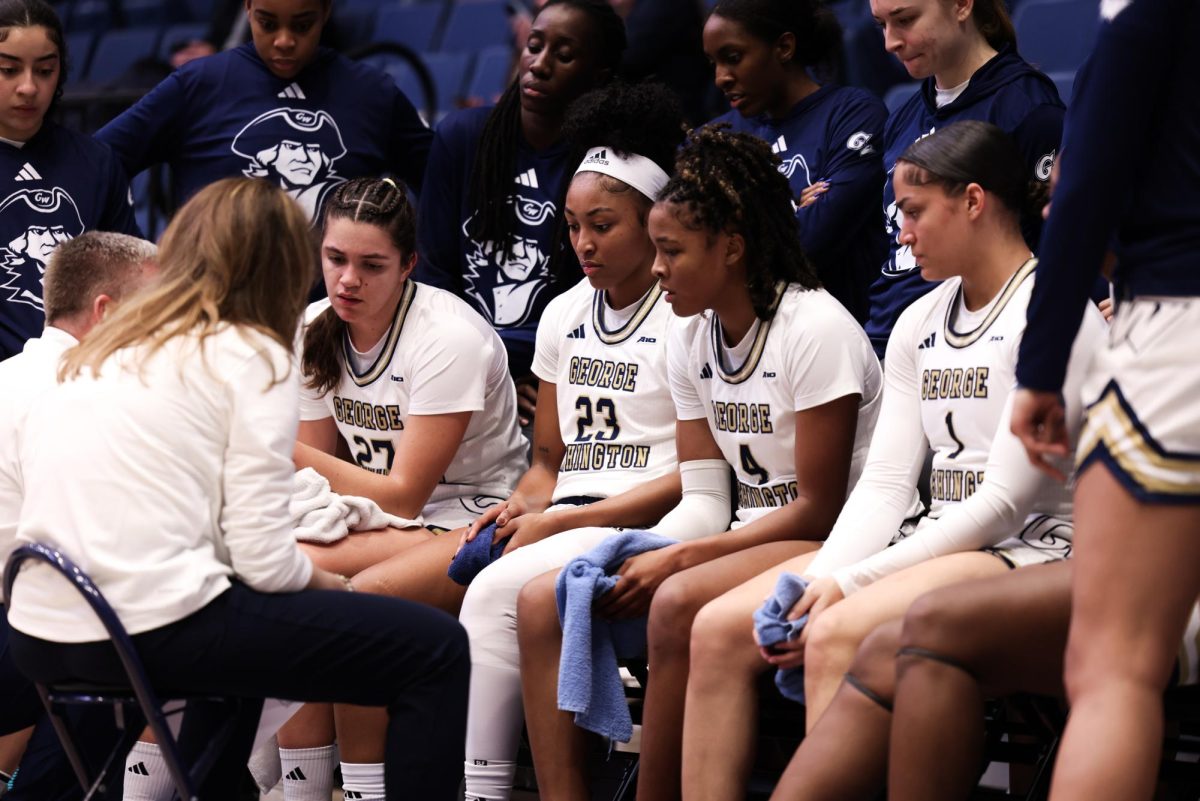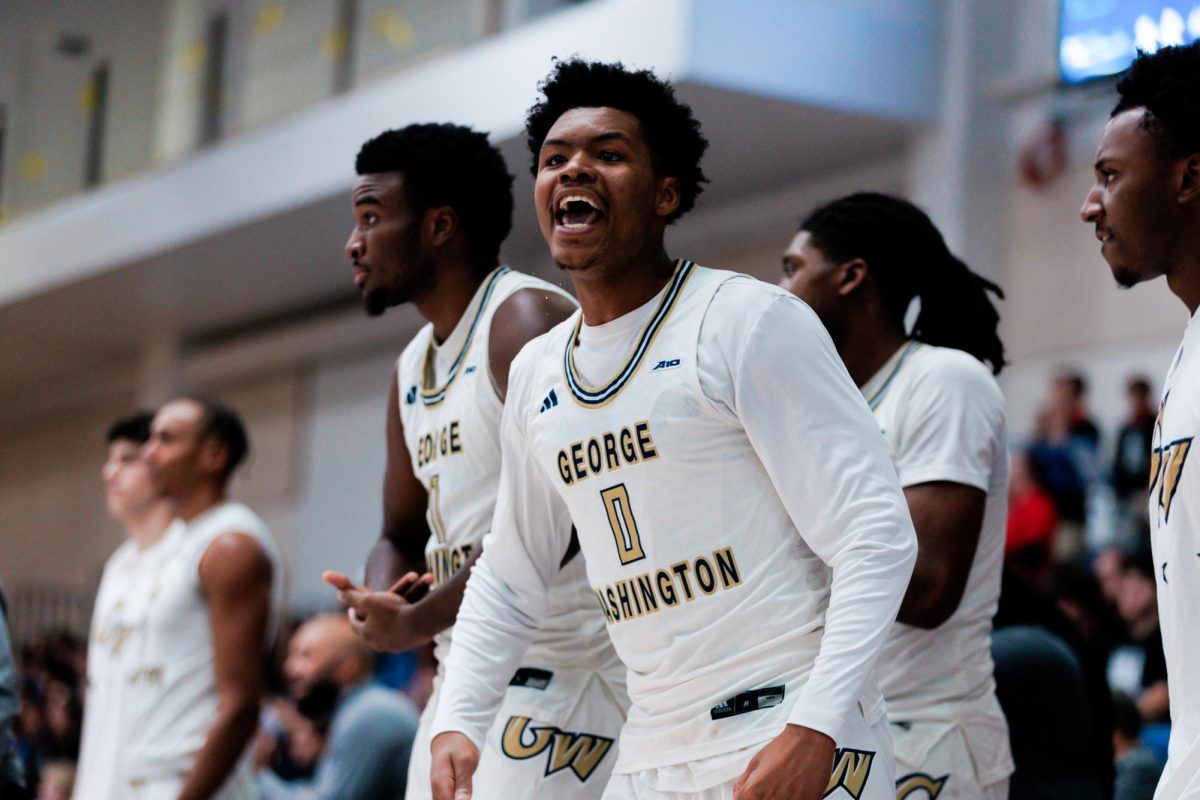Updated Thursday, March 18, 12:40 a.m.
CHARLOTTESVILLE, Va.– Thirteen. That’s how many blocks and three-pointers the University of Virginia recorded against the GW men’s basketball team Wednesday night, knocking the Colonials out of the first round of the National Invitation Tournament 79-66.
Shooting 52 percent from the field, Virginia (18-12) ended the Colonials’ season in front of 6,512 at University Hall. The year was the most successful since 1999 for GW (18-12), which finished in second place in the Atlantic 10 West while playing with a predominantly underclassman lineup.
But GW could not extend that success into the postseason, falling to a Virginia squad that has won six of its past nine games, including three home wins over Top 15 opponents. Senior guard Todd Billet led the way for the Cavaliers with 19 points, while freshman J.R. Pinnock also had a team-high 19 for GW.
Both teams were balanced on offense, as each had four players finish in double figures. But the Colonials could not match Virginia’s firepower, shooting 34 percent.
“(Virginia) made some just terrific shots, and they were very difficult to defend because they were making threes out of transition,” GW head coach Karl Hobbs said. “For some reason we seem to run into teams that shoot the ball well in transition these last couple games.”
Junior guard T.J. Thompson, coming off the bench for GW, scored zero points for the second consecutive game. He had never been held scoreless in 82 career games before GW’s A-10 semifinal loss to Xavier on March 12.
Down 48-33 at halftime, GW opened the second half on a 10-0 run and did not allow Virginia to score until the 14-minute mark. But the Colonials could not duplicate that kind of defense for the other 34 minutes of the game. After GW cut Virginia’s lead to five early in the second half, the Cavaliers resumed their barrage of three-pointers and lay-ups to go up by as many as 20.
“We’re not used to being up by 15 at the half, and we just stopped playing,” Virginia head coach Pete Gillen said. “We were just watching. We were spectators.”
Gillen also credited GW’s halftime adjustments, but Hobbs said there were no strategic changes.
“(I told the team), ‘Fellas, play harder.’ That was the only adjustment,” Hobbs said. “It was nothing technical, no ‘cut across the lane’ or ‘set a screen.’ No, no. It was, ‘Play harder.’ That was it. And I was very happy with the way they responded.”
GW played the Cavaliers closely in the first five minutes of the game, but Virginia used a 7-0 run to go up 21-14 with just over 13 minutes remaining. A dunk by sophomore Omar Williams cut Virginia’s lead to eight with under seven minutes left in the half, but Virginia responded with a six-point possession. The Cavs made one of their nine first-half three-pointers, drew a foul away from the ball during the shot and went on to hit another from long-range.
The Colonials countered Virginia’s hot shooting by driving to the hoop but had trouble converting, as the Cavaliers tallied 13 blocks.
“If they don’t get those 13 blocks, that’s 10 more points on the board for us,” Hobbs said. “I think we had 12 offensive rebounds in the first half. The problem was, their big fellas wouldn’t allow us to finish those plays off.”
Playing in the NIT for the first time since 1997, the Colonials got an unlucky draw with its first-round pairing, which the NIT typically decides based on teams’ geographic proximity to each other. Coming into a hostile environment, Hobbs said he was not sure how his young team would respond.
“This is the first game we’ve played all year where I did not have a feel for my team,” he said. “I didn’t know if we were excited. I just didn’t have a sense of the mood of the team, and mainly because we’ve never been in this situation before…But I was happy with the way we responded, particularly in the second half.”
Hobbs was particularly complimentary of Gillen, who he has known since their careers as players, and expressed optimism for both schools’ programs.
“I look at my team and I look at this Virginia team and I think we’re both on a similar path,” he said. “We both have some terrific young people with great character and I think both programs are going to have a lot of success in the future.”






